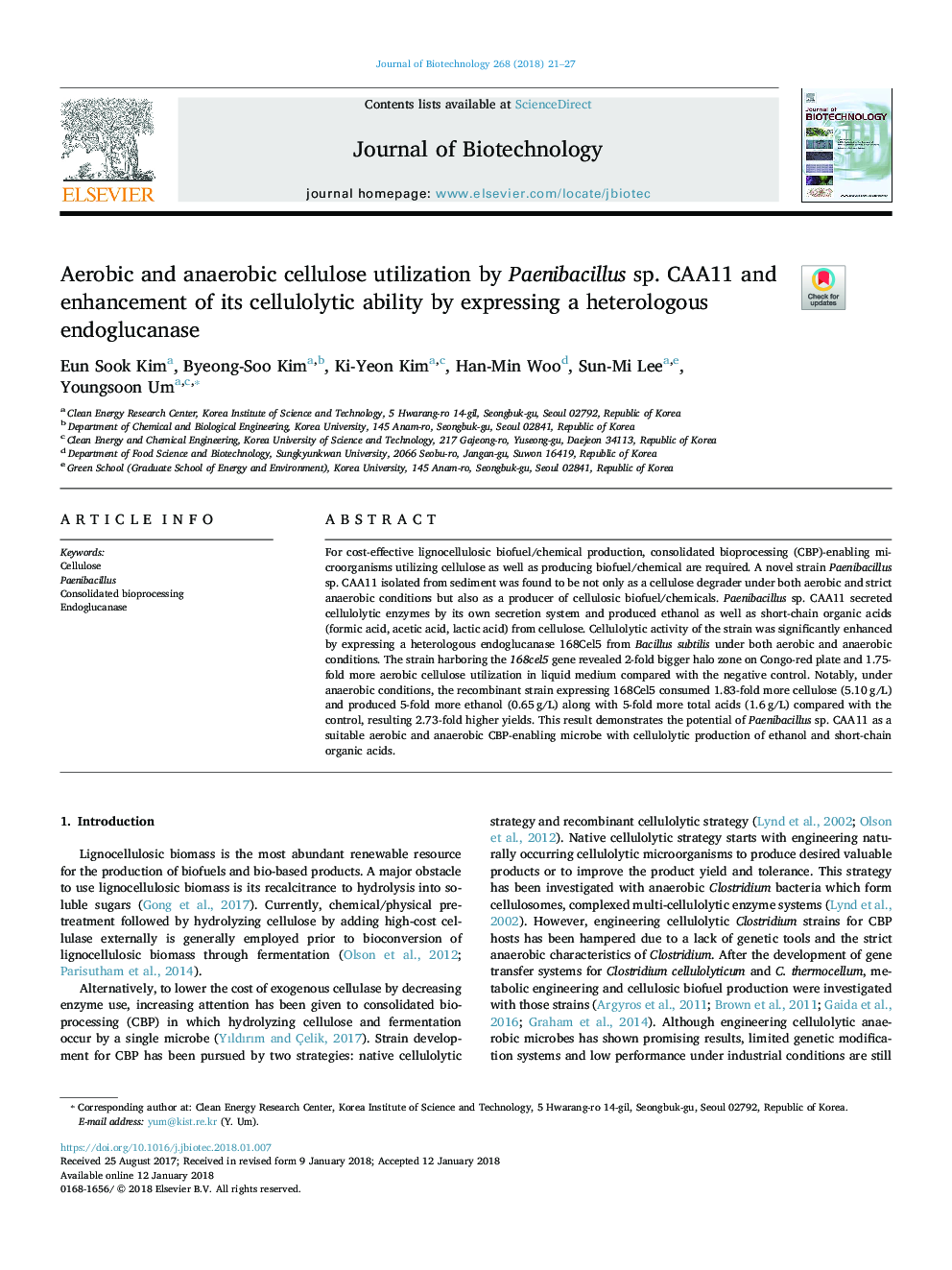| Article ID | Journal | Published Year | Pages | File Type |
|---|---|---|---|---|
| 6490365 | Journal of Biotechnology | 2018 | 7 Pages |
Abstract
For cost-effective lignocellulosic biofuel/chemical production, consolidated bioprocessing (CBP)-enabling microorganisms utilizing cellulose as well as producing biofuel/chemical are required. A novel strain Paenibacillus sp. CAA11 isolated from sediment was found to be not only as a cellulose degrader under both aerobic and strict anaerobic conditions but also as a producer of cellulosic biofuel/chemicals. Paenibacillus sp. CAA11 secreted cellulolytic enzymes by its own secretion system and produced ethanol as well as short-chain organic acids (formic acid, acetic acid, lactic acid) from cellulose. Cellulolytic activity of the strain was significantly enhanced by expressing a heterologous endoglucanase 168Cel5 from Bacillus subtilis under both aerobic and anaerobic conditions. The strain harboring the 168cel5 gene revealed 2-fold bigger halo zone on Congo-red plate and 1.75-fold more aerobic cellulose utilization in liquid medium compared with the negative control. Notably, under anaerobic conditions, the recombinant strain expressing 168Cel5 consumed 1.83-fold more cellulose (5.10â¯g/L) and produced 5-fold more ethanol (0.65â¯g/L) along with 5-fold more total acids (1.6â¯g/L) compared with the control, resulting 2.73-fold higher yields. This result demonstrates the potential of Paenibacillus sp. CAA11 as a suitable aerobic and anaerobic CBP-enabling microbe with cellulolytic production of ethanol and short-chain organic acids.
Related Topics
Physical Sciences and Engineering
Chemical Engineering
Bioengineering
Authors
Eun Sook Kim, Byeong-Soo Kim, Ki-Yeon Kim, Han-Min Woo, Sun-Mi Lee, Youngsoon Um,
